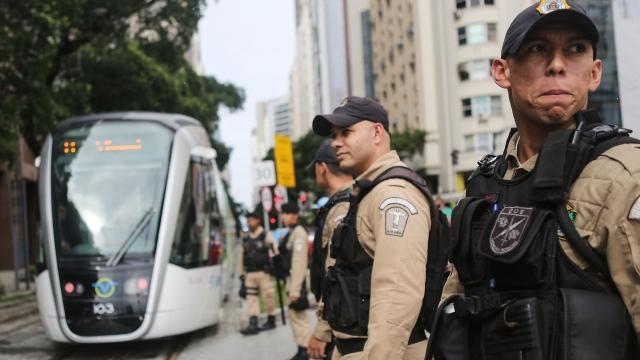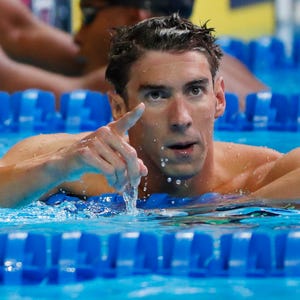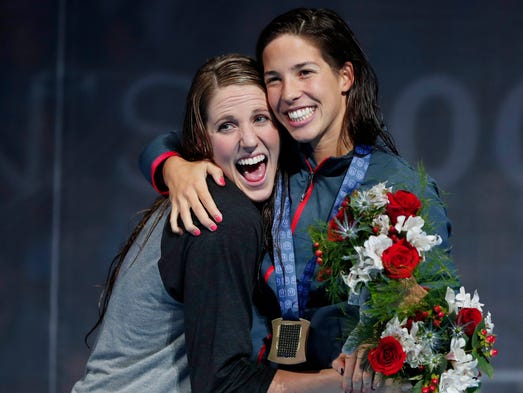30 days out: The concerns about Rio Olympics – USA TODAY

Police in Rio say they’re underpaid and understaffed.
Newslook
With just 30 days until the opening of the Summer Olympics in Rio, the concerns that have long overshadowed the Games linger. The myriad and varied issues — from water pollution to political strife — are unlikely to be resolved before or by the Games. Here’s a look at a few of the problems plaguing the Rio Olympics as we move toward the opening ceremony on Aug. 5:
Zika virus: The mosquito-borne illness that has spread to 61 countries and territories has dominated pre-Olympics concerns even as organizers offer assurances of the virus’ spread being limited in the Brazilian winter. Zika has been found to cause microcephaly, a birth defect causing smaller-than-normal heads and developmental delays, and neurological disorders.
While national Olympic committees are offering means to prevent spread of the disease — such a long-sleeved shirts and pants and insect repellant — some athletes have decided not to compete in Rio because of concerns about the virus. Golfers Adam Scott, Rory McIlroy and Jason Day are among the most high-profile athletes to skip a trip to the Olympics.
Construction: Rio organizers took control of the velodrome, whose construction has been beset by repeated delays and contract disputes, on June 26, according to the Associated Press. While cyclists can use the track, more work needs to be done on the venue and it won’t be able to host races until the Games start.
A new metro line linking the Olympics venues and beaches to the main Olympic center in the southwest of the city is still not completed and not expected to open until Aug. 1, four days before the start of the Games.
Water pollution: Testing by the Associated Press found alarmingly high levels of viruses and bacteria in water where sports such as sailing, rowing, canoeing and open water swimming will be held. Researchers also have found a super bacteria in Rio’s coastal waters, CNN reported. Rowers, sailors and other athletes are taking precautions such as washing down oars while training and competing in Rio.
Unrest: Brazil also finds itself in the middle of its worst economic recession in decades, with the state government declaring a state of “public calamity” to call for emergency actions to avoid a collapse in “public safety, health, education, transport and environmental management.”
Interim president Michel Temer took over in May as President Dilma Roussef awaits an impeachment trial, but the impact of that on the Games is largely seen as only ceremonial in who opens them on Aug. 5.
Violence remains a problem in the city, where Units of Pacifying Police have tried with mixed results to control violence and the drug trade in the favelas.
Doping: Easily the biggest issue at the Games not controlled by the host city, doping remains a focus of the International Olympic Committee, sports federations and athletes going into the Games. The International Association of Athletics Federations last month extended a ban that will keep Russia’s track and field athletes from competing in Rio, concluding that the country had not done enough to clean up state-sponsored doping that was revealed in a World Anti-Doping Agency independent commission report in late 2015.
The IAAF did leave the door open for some athletes to apply for exceptional eligibility if they could show they had been subject to anti-doping controls in another country and had not been tainted by the Russian system. While the IAAF said any athletes who met those criteria would compete under a neutral flag, IOC president Thomas Bach has said they would compete under the Russian flag. That disagreement remains unresolved.
Runner Yuliya Stepanova, the whistleblower who brought forward evidence of doping in Russian athletics, was the first granted such eligibility. The IOC has not said whether it will allow her to compete in Rio.
The IAAF said 80 Russian athletes have filed for exceptional eligibility. That number far exceeds the few IAAF officials said would likely fit the criteria when it announced its decision last month. The Russian Olympic Committee also has challenged the ban in the Court of Arbitration for Sport, according to the Associated Press.
Who won’t be there: Several Americans will be unable to defend their gold medals from London after failing to qualify for the Games entirely or in those events at various trials.
Missy Franklin won the 100-meter backstroke in London but did not make the team in that event this year. Same goes for Ryan Lochte in the 400 individual medley and Matt Grevers in the 100 back.
Natalie Coughlin, a 12-time Olympic medalist, pulled out of swimming trials after failing to make the team in her first two events.
On the track, Sanya Richards-Ross, the gold medalist in the 400 meters in London, was unable to complete the prelim of that event just weeks after tearing her hamstring. Nick Symmonds, who finished fifth in the 800 in 2012, pulled out of trials with an injured ankle.
Jamaican sprinter Usain Bolt expects to be in Rio despite pulling out of his country’s trials this weekend after tearing his hamstring.
PHOTOS: BEST OF SWIMMING TRIALS













































































